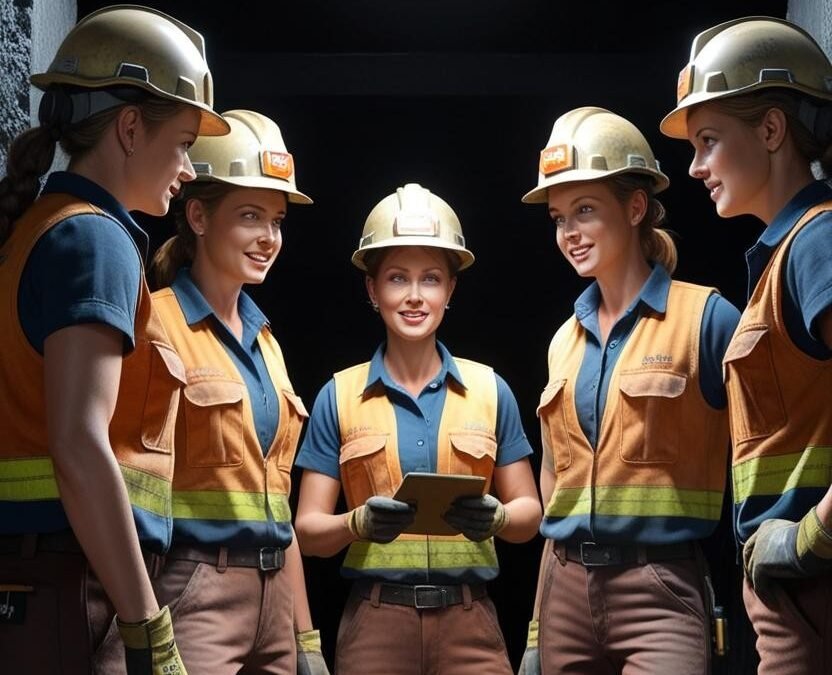Using Toolbox Talks to Discuss Mental Health on Mine Sites: A Practical Guide
Mining is one of the toughest industries out there—physically gruelling, often isolating, and packed with high-stakes risks. While we’ve made huge strides in keeping workers safe from physical harm, mental health remains a critical yet sometimes overlooked piece of the puzzle. That’s where toolbox talks come in. These short, regular safety meetings are already a fixture on mine sites, making them a perfect opportunity to tackle mental health head-on. Here’s why it matters, why toolbox talks are the right platform, how to do it effectively, and what to focus on—or avoid.
Why Discuss Mental Health on Mine Sites?
Mental health isn’t just a personal issue; it’s a workplace safety and productivity issue. Miners face unique stressors: long shifts, remote locations, physically demanding tasks, and the constant presence of danger. These can lead to stress, anxiety, depression, or burnout—conditions that don’t just affect the individual but can ripple out to increase accident risks, lower morale, and drive up absenteeism. For example, fatigue from poor mental health can dull focus during a blasting operation, while isolation might make a worker less likely to speak up about a safety concern.
Addressing mental health through toolbox talks shows workers they’re valued beyond their output. It builds a culture of care, reduces stigma, and equips teams with tools to thrive in a tough environment. The result? A safer, more resilient workforce.
Why Toolbox Talks Are the Perfect Platform
Toolbox talks are short, informal safety meetings—typically 5-10 minutes—held right on the worksite. They’re already part of the daily or weekly routine on mine sites, so adding mental health discussions doesn’t mean reinventing the wheel. Here’s why they work so well:
- Familiar Routine: Workers are used to gathering for these talks, so it’s an easy fit—no extra time or new structures needed.
- Safety Connection: Mental health ties directly to safety. Stress or distraction can lead to mistakes in high-risk tasks like drilling or hauling, making it a natural extension of existing safety topics.
- Low Pressure: The casual, group setting keeps things approachable, encouraging participation without putting anyone on the spot.
Plus, resources like the Mental Health Toolbox Talk Topics guide from Drilldownreports.com offer 35 tailored topics for every mine section—from extraction to management—making it simple to get started.
How to Approach Mental Health in Toolbox Talks
Bringing mental health into toolbox talks requires a thoughtful approach. Here’s how to do it right:
- Set a Supportive Tone: Start by normalizing the topic. Say something like, “Mental health is just as important as wearing your PPE—it keeps us sharp and safe.” This sets a non-judgmental vibe.
- Keep It Practical: Offer actionable tips workers can use on the spot, like deep breathing for stress or checking in with a mate who seems off. Keep it relevant to their daily grind—think coping with confined spaces in underground mining or managing shift changes in processing plants.
- Use Examples: Share anonymized stories or stats to show mental health challenges are common. For instance, “One in five miners might feel overwhelmed by long shifts—here’s what can help.”
- Point to Resources: Highlight support options like employee assistance programs (EAPs) or helplines. The Drilldownreports.com mental health resources page has templates and guides—like the Daily Mental Health Toolbox Talk Template—to make this easy.
- Train Facilitators: Whoever’s leading the talk—whether a supervisor or safety officer—should be comfortable with the topic. A quick briefing on basics (e.g., spotting stress signs) can make a big difference.
Keep it short, sharp, and tied to the mine’s realities. The goal is awareness and support, not a therapy session.
What to Discuss
The beauty of toolbox talks is their flexibility—you can tailor topics to your site’s needs. Here are some ideas, inspired by the Mental Health Toolbox Talk Topics guide from Drilldownreports.com :
- Stress Management: Techniques like mindfulness or pacing tasks, especially for high-pressure roles in extraction or management.
- Recognizing Signs: How to spot stress, fatigue, or anxiety in yourself or a coworker—think mood swings or withdrawal during long shifts.
- Coping Strategies: Simple wins like better sleep, hydration, or a quick stretch, tailored to sections like beneficiation or support services.
- Team Support: How to check in on a struggling colleague, vital in tight-knit crews across employee facilities or logistics.
- Resource Awareness: Where to turn for help, from onsite peer support to external helplines, no matter the role.
The Drilldown guide breaks this down by section—35 topics each for mining, processing, administration, and more—so you can pick what fits your team. For example, underground miners might focus on “Managing stress from confined spaces,” while office staff tackle “Time management for deadlines.”
What Not to Discuss
Toolbox talks aren’t the place for deep dives or personal probes. Here’s what to steer clear of:
- Personal Details: Don’t call out individuals or share specific stories unless they’re anonymized. This is a group setting—keep it confidential.
- Medical Advice: Avoid diagnosing (e.g., “You might have depression”) or prescribing solutions. Leave that to professionals and focus on awareness instead.
- Forced Sharing: Never pressure anyone to open up. Offer the space, but let participation be voluntary.
The aim is to inform and support, not to overstep or make anyone uncomfortable.
The Payoff
Bringing mental health into toolbox talks isn’t just a feel-good move—it’s a game-changer. It can cut down on accidents by keeping workers mentally sharp, boost productivity through better morale, and lower turnover by showing people they’re cared for. Most importantly, it creates a mine site where safety isn’t just about hard hats and harnesses—it’s about minds, too.
Get Started Today
Ready to make mental health a priority? The Drilldownreports.com mental health resources page has everything you need: a comprehensive Mental Health Toolbox Talk Topics guide with 35 topics per section, plus editable templates like the Fatigue Management Checklist and Mental Health Emergency Response Plan. These tools align with standards like OSHA and ISO 45001, so they slot right into your safety program.
Start small—pick one topic, try it at your next talk, and build from there. Because a healthier mine site starts with a single conversation.
Let’s make mental health as routine as a safety briefing. One toolbox talk at a time, we can build a stronger, safer mining industry. Check out Drilldownreports.com and take the first step today!

